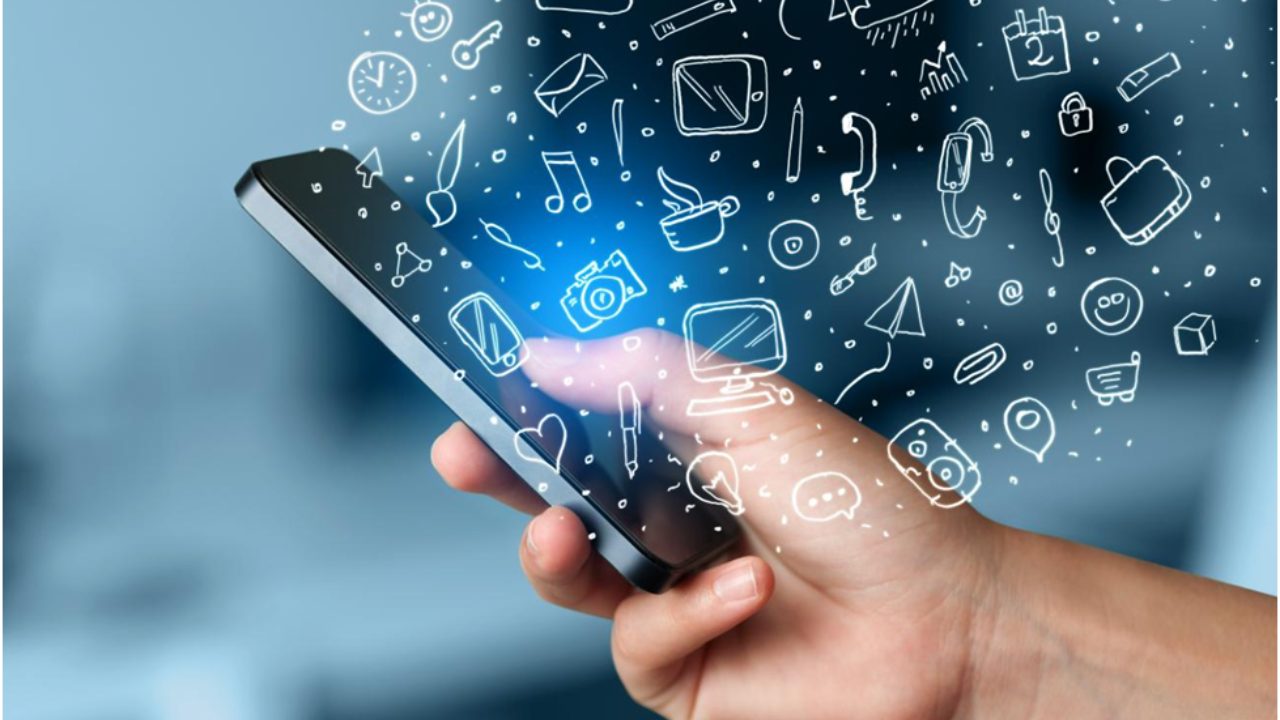It’s no secret that customer engagement is a vital component of business success. Engaged customers are more likely to be loyal, purchase more frequently, and recommend your brand to others.
However, in today’s digital age, businesses face numerous challenges in engaging their customers effectively. With so many options available, consumers have become increasingly demanding, seeking seamless experiences that are tailored to their specific needs.
In fact, studies show that 88% of customers are unlikely to return to a website after a bad experience.
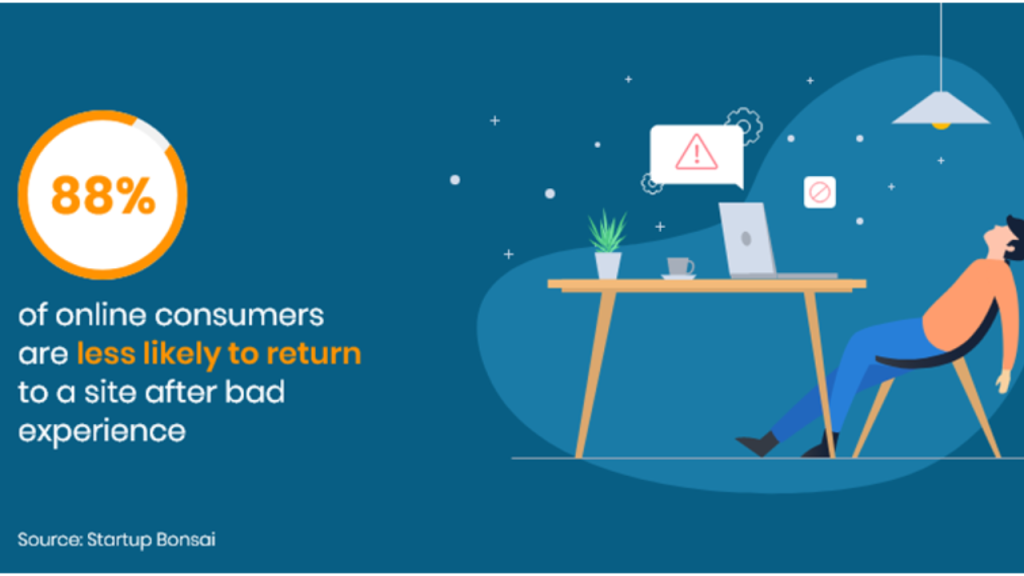
Source: Startup Bonsai
That’s where mobile apps come in – they offer a unique opportunity to engage customers in a more personalized way. According to a recent study, businesses with mobile apps see a 60% increase in customer engagement.
In this article, we’ll explore the ways mobile apps can enhance the customer experience and provide real-world examples of how businesses have successfully leveraged this technology to drive engagement and growth.
Expert Insights on Why Mobile Customer Experience and Engagement Matter More Than Ever
Mobile app expert, Dan Strutt, once said, “In a mobile-first world, consumers expect brands to provide an exceptional mobile experience, and if they don’t, they’ll go elsewhere.” This sentiment states that customers who rate an app five stars are ten times more likely to keep using it than those who rate it one star.
In terms of engagement, a study by Business of Apps, typically, users who interact with an app at least once a week have a tendency to remain engaged, with a retention rate of 90%. Whereas, over the past three years, the retention rates for Android users during the first 30 days after installation have consistently decreased during Q3.
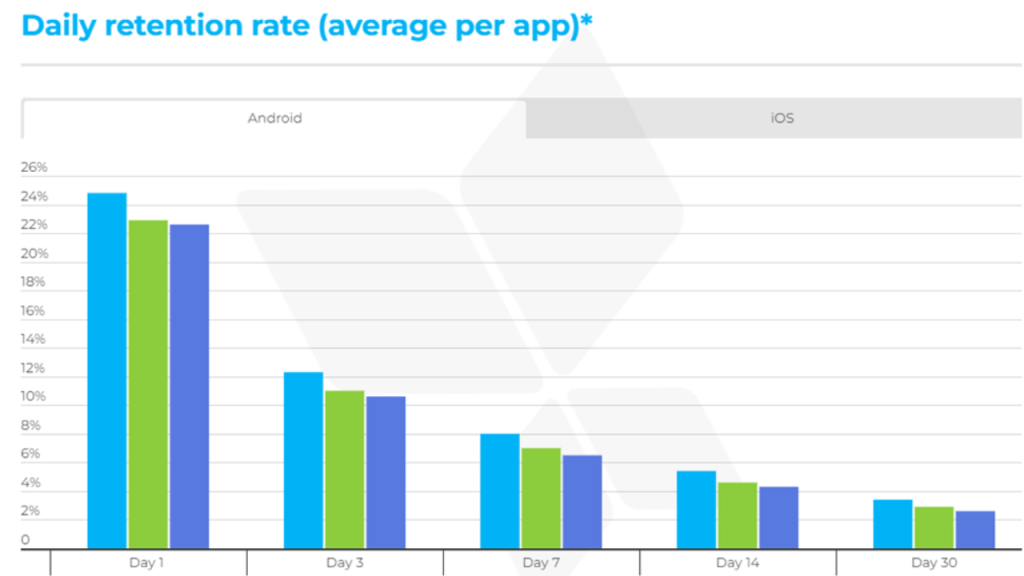
Source: Appflyers
Overall, these statistics and expert opinions emphasize the importance of providing a seamless and engaging experience for customers on mobile apps. Now let’s understand how businesses can improve their mobile app’s customer experience and overall success in the digital marketplace.
5 Key Tips On How Mobile Apps Can Enhance the Customer Experience
In today’s competitive market, providing an exceptional customer experience is crucial for the growth and success of any business. Mobile apps can help businesses achieve this goal by providing a seamless and convenient experience for customers.
In this article, we will discuss 5 ways mobile apps can enhance the customer experience and drive customer engagement.
1. Personalization
“We continue to leverage the advantages of our mobile app to elevate the personalization of the customer experience and deepen customer engagement. As a result, mobile orders represented 26% of US Company-operated transactions in Q2 [2021], up from 18% a year ago. As we have seen each quarter, our digital channels convenience has proven successful in driving demand,” says Kevin Johnson, CEO of Starbucks.
This signifies that mobile apps can collect data about a customer’s preferences, behavior, and purchase history to create a personalized experience.
As per research conducted by Epsilon, there is an 80% greater likelihood of customers engaging with businesses that provide personalized experiences.
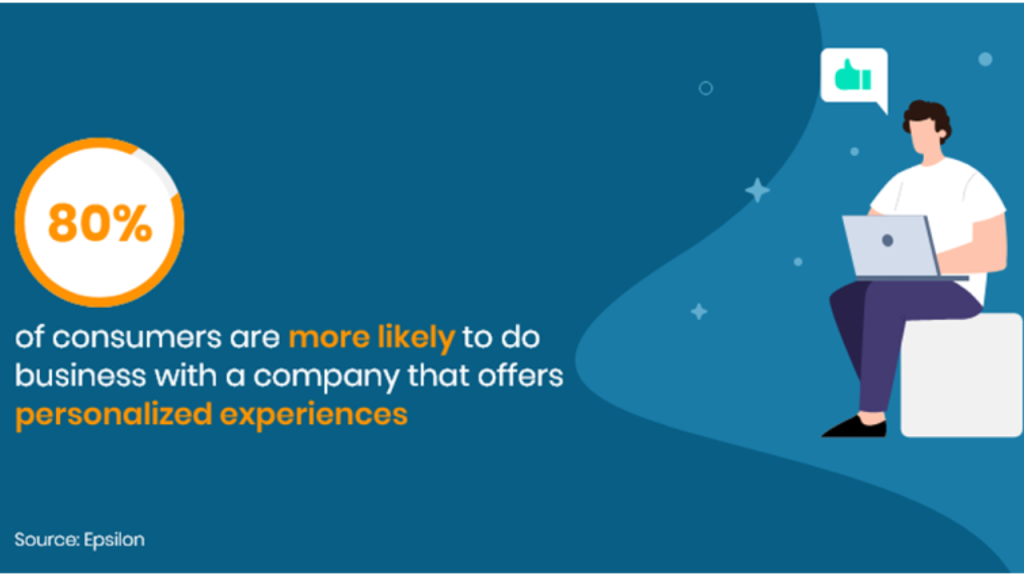
Source: Epsilon
Thus, one of the most effective ways mobile apps can enhance the customer experience is through personalization. Personalization involves tailoring the app experience to the individual needs and preferences of the customer.
2. In-App Messaging
In-app messaging is another effective way to enhance the customer experience and drive engagement. In-app messaging involves sending targeted messages to customers while they are using the app. These messages can include product recommendations, promotions, and helpful tips.
As per a study conducted by Reckless, the impression rate of in-app messaging is an astonishing 75%, which is almost three times greater than push notifications and 45 times higher than email.
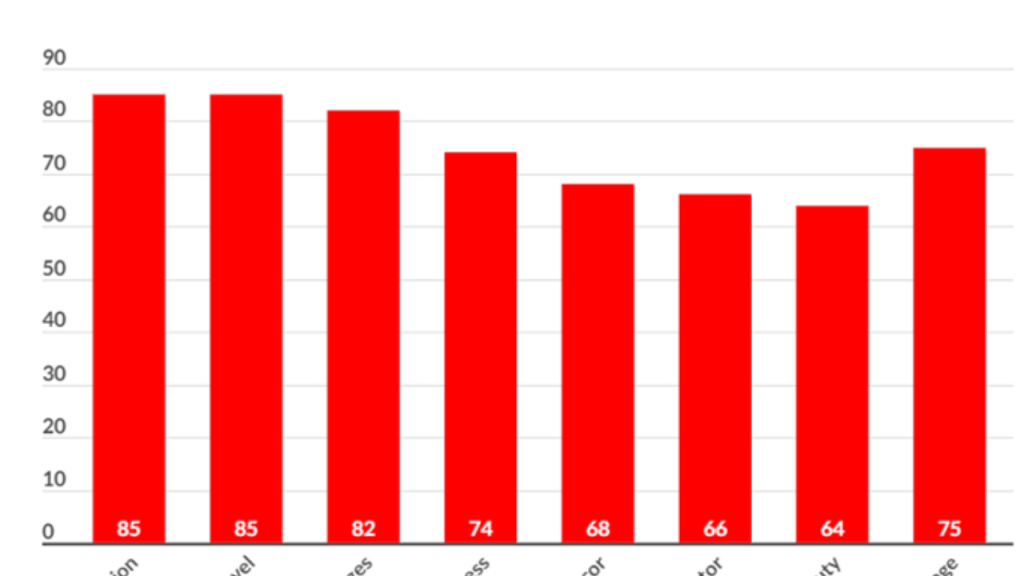
Source: Business Of Apps
In-app messaging can also be used to provide customer support and assistance. This can include answering customer questions, resolving issues, and providing guidance. In-app messaging can help businesses provide a more personalized and convenient experience for their customers.
3. Gamification
Yogesh Choudhary, CEO of Finoit Technologies, stated that “Effective gamification requires a deep understanding of your users’ motivations, behaviors, and preferences. By using data-driven insights, you can design a gamification strategy that is tailored to your users’ needs and desires, creating a more personalized and engaging experience.“
This follows the fact that gamification is the use of game-like elements to make non-game activities more engaging and fun. Gamification can be used in mobile apps to enhance the customer experience and increase engagement. Mobile apps can use gamification to incentivize customers to use the app more frequently, and to complete certain actions.
For example, Duolingo, a language-learning app, uses gamification to incentivize users to learn a new language. The app rewards users with points, badges, and progress trackers for completing lessons and practicing their skills. This has helped the app become one of the most popular language-learning apps in the world.
4. Push Notifications
Push notifications are messages that are sent directly to a user’s device, even when the app is not open. Push notifications can be used to notify customers about new products, promotions, or events. They can also be used to remind customers about abandoned shopping carts, upcoming appointments, or other important information.
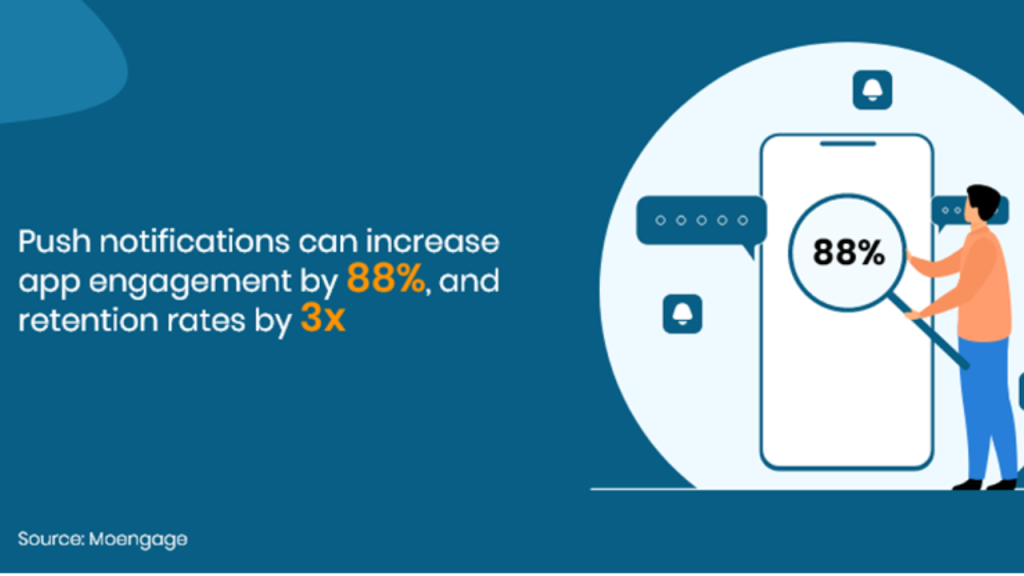
According to a study by Moengage, push notifications can increase app engagement by 88%, and retention rates by 3x. However, it is important to use push notifications strategically, and not to overwhelm customers with too many notifications.
For example, Sephora’s mobile app uses push notifications to notify customers about new products, exclusive promotions, and upcoming events. The app also uses location-based push notifications to remind customers about appointments at nearby stores.
5. Augmented Reality (AR)
AR technology provides customers with an immersive and interactive experience that can enhance the customer experience. For example, furniture companies can allow customers to see how a piece of furniture would look in their home before making a purchase.
According to a report by Allied Market Research, the global Augmented Reality market size is expected to reach $411.4 billion by 2031. This shows that businesses increasingly invest in AR technology to enhance their customer experience.
One great example of a company using AR to enhance its customer experience is IKEA. The IKEA Place app allows customers to place furniture virtually in their homes using AR technology. Customers can choose from a range of furniture and see how it would look in their home before making a purchase. This not only enhances the customer experience but also helps customers make informed purchase decisions.
Conclusion
Customer engagement is crucial for businesses to survive in today’s competitive market, and mobile apps have emerged as a powerful tool to enhance the customer experience. Investing in mobile app development can not only increase customer engagement but also provide valuable insights into customer behavior and preferences.
To achieve success, businesses must collaborate with a reputable mobile app development agency that can design and develop a user-friendly app that aligns with their brand image and meets their customers’ needs. By following a customer-centric approach, businesses can create an app that not only attracts customers but also retains them, leading to increased sales and brand loyalty.
